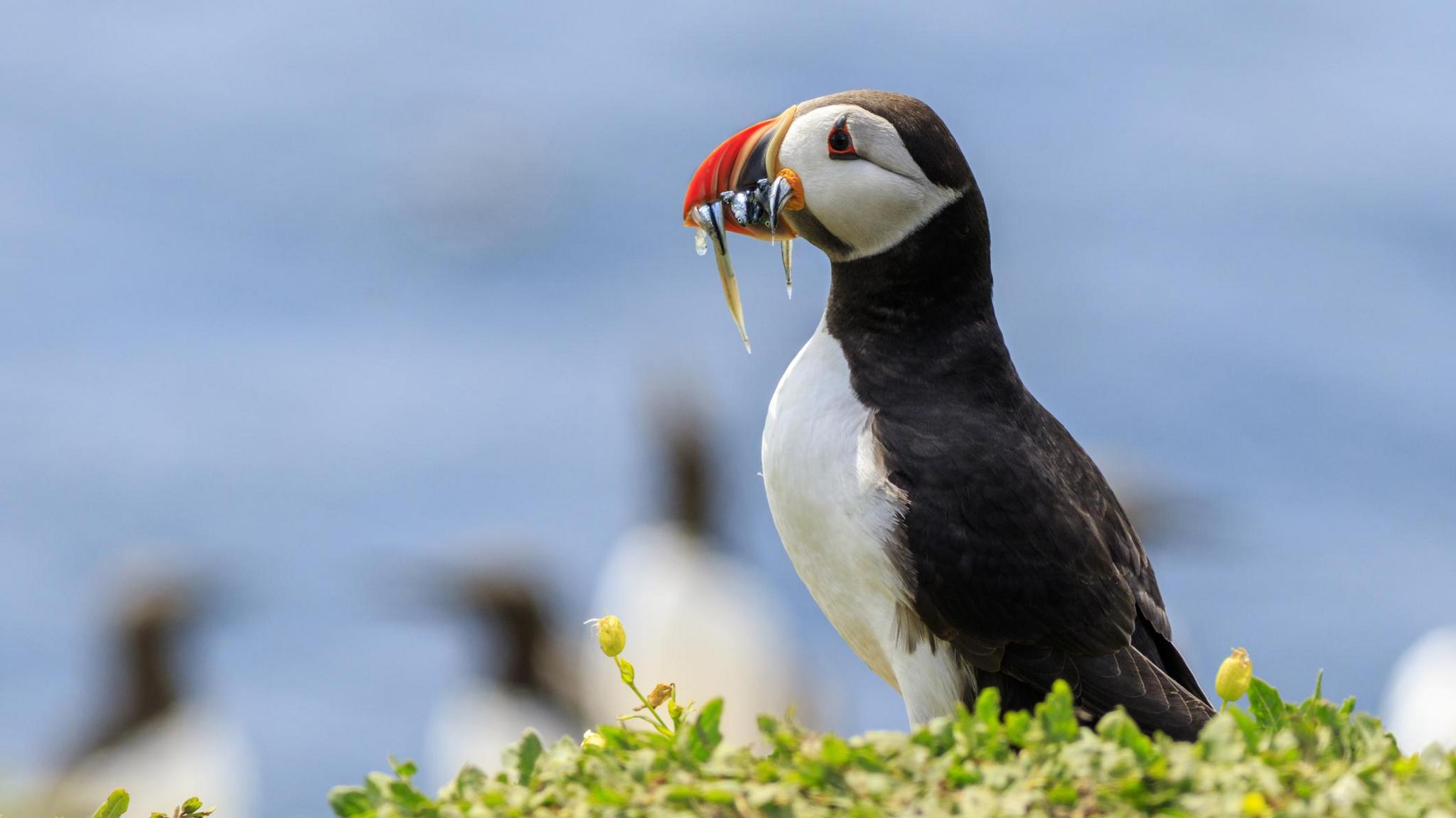Challenge to fishing ban a threat to seabirds - RSPB
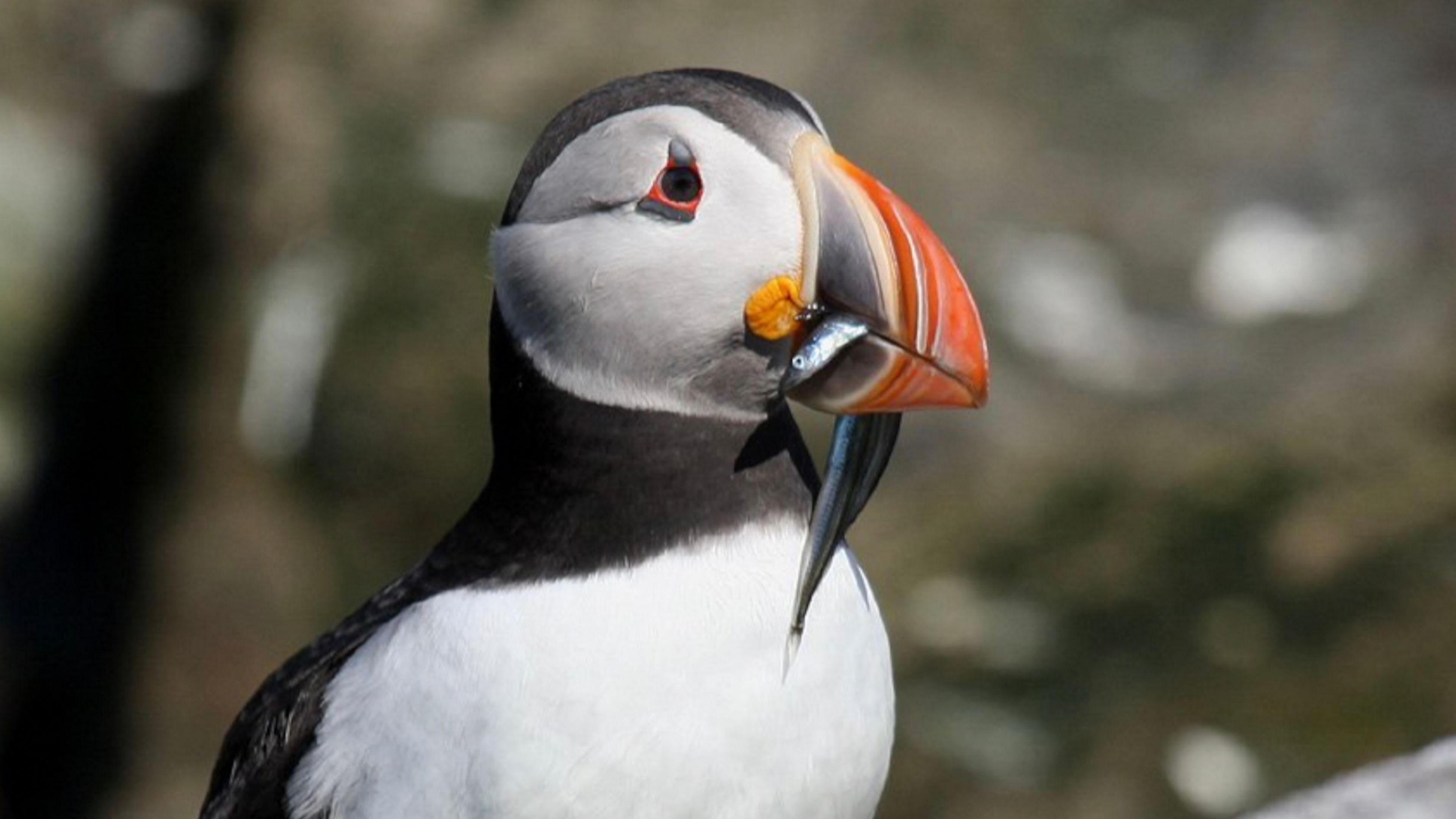
Puffins are one of the species highly dependent on sandeels for survival
- Published
The Royal Society for the Protection of Birds (RSPB) has said it is "vital" a UK ban on fishing for sandeels in the North Sea remains in place.
The ban, which stops sandeel trawlers fishing in English and Scottish sections of the North Sea, came into effect in April following a long campaign by conservationists concerned about declining seabird populations, particularly puffins and kittiwakes.
Fishermen in Denmark are supprting a challenge by the European Union to the UK ban, claiming they have lost half of their fishing grounds because of the new restrictions.
The RSPB said backtracking on the ban would pose a threat to some seabirds' population resilience.
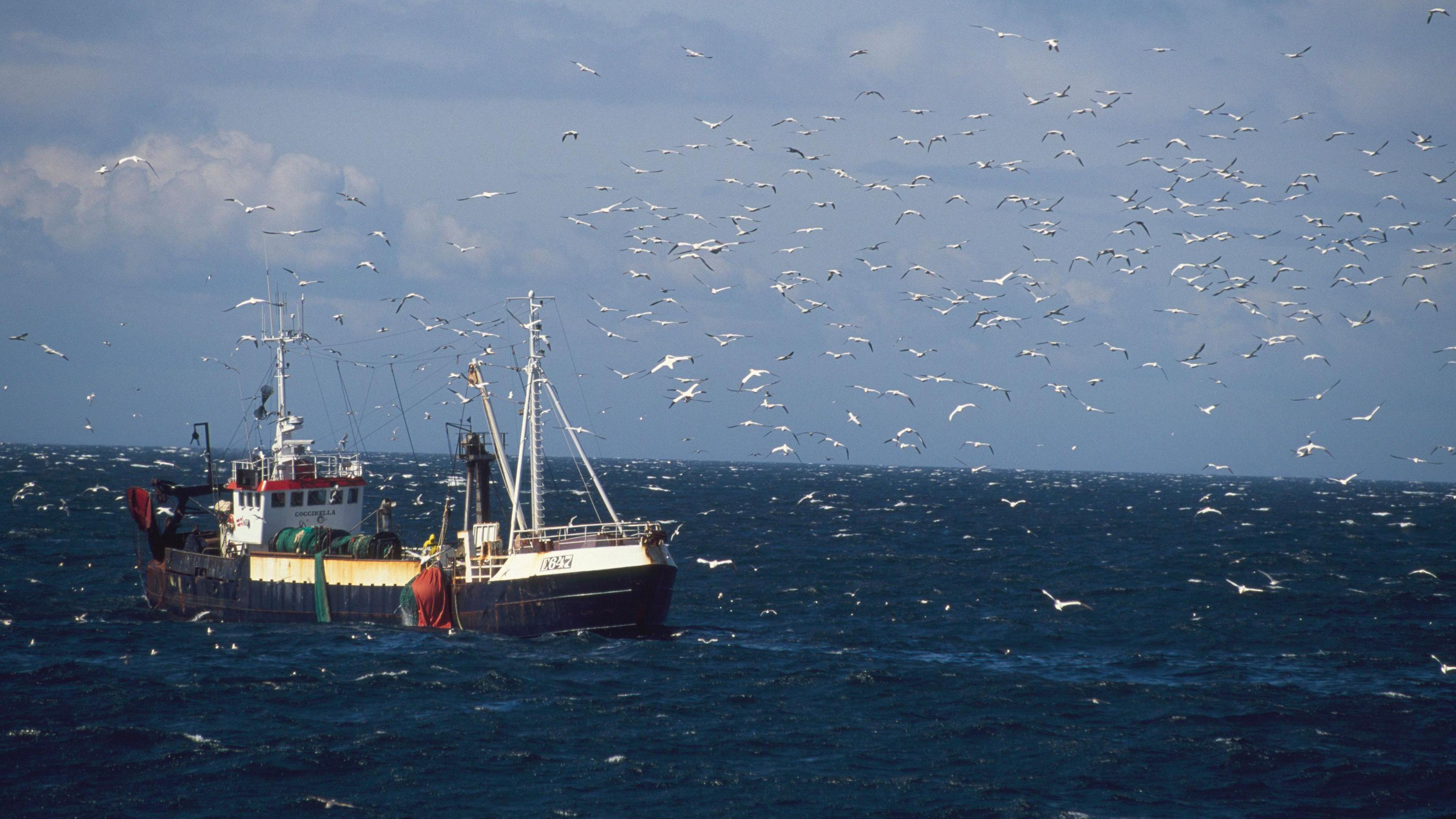
A Danish trawler fishing for sandeels in the North Sea
The European Union has written to the UK Government on behalf of Danish commercial fishing organisations, claiming the sandeel ban is in breach of international trade agreements put in place following Brexit.
Esben Sverdrup-Jensen, president of the European Association of Fish Producers Organisations, said the impact of the ban was hitting fishermen hard.
"It is massive - not only for the fleet but for the family-owned businesses that have driven this industry for decades, and also for the processing industry on land and the many people working there," he said.
Mr Sverdrup-Jensen questioned the scientific basis for the sandeel ban, saying: "Sandeel is probably the best managed fishery in the world.
"We follow a system of ecosystem-based management here. It is scientifically-based. A lot of science goes into the management of the stock," he said.
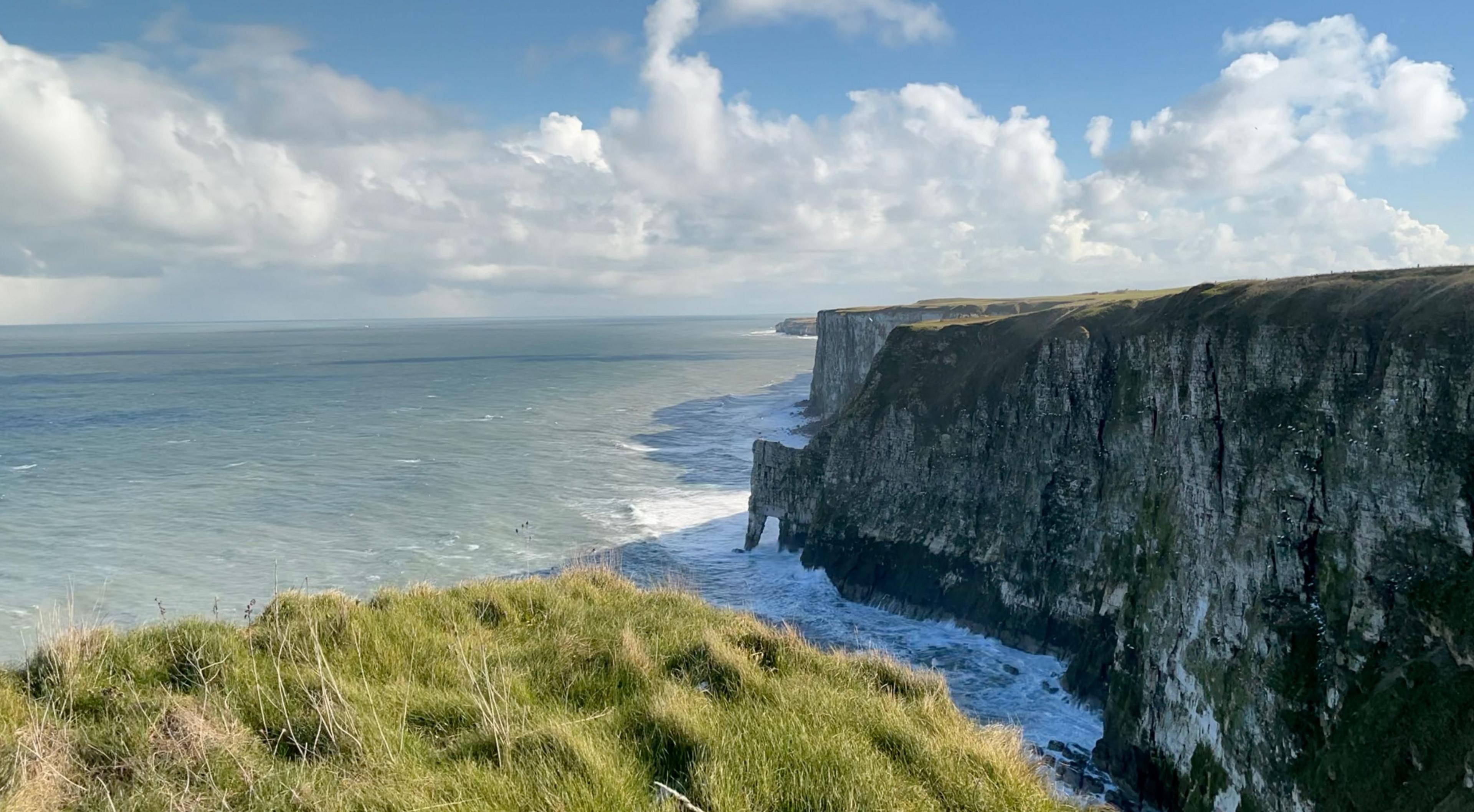
The East Yorkshire coast is home to some of the most important seabird colonies in Europe
The RSPB said the closure of the sandeel fisheries to trawlers was "critical".
Bernadette Butfield, a senior marine policy officer with the RSPB, said: "The linkages between the decline in seabird populations and the availability of their prey is what has driven the need for these closures.
"The decision to close the fisheries throws a lifeline to our seabirds.
"Backtracking on this will really pose a further threat to their breeding success and their population resilience".
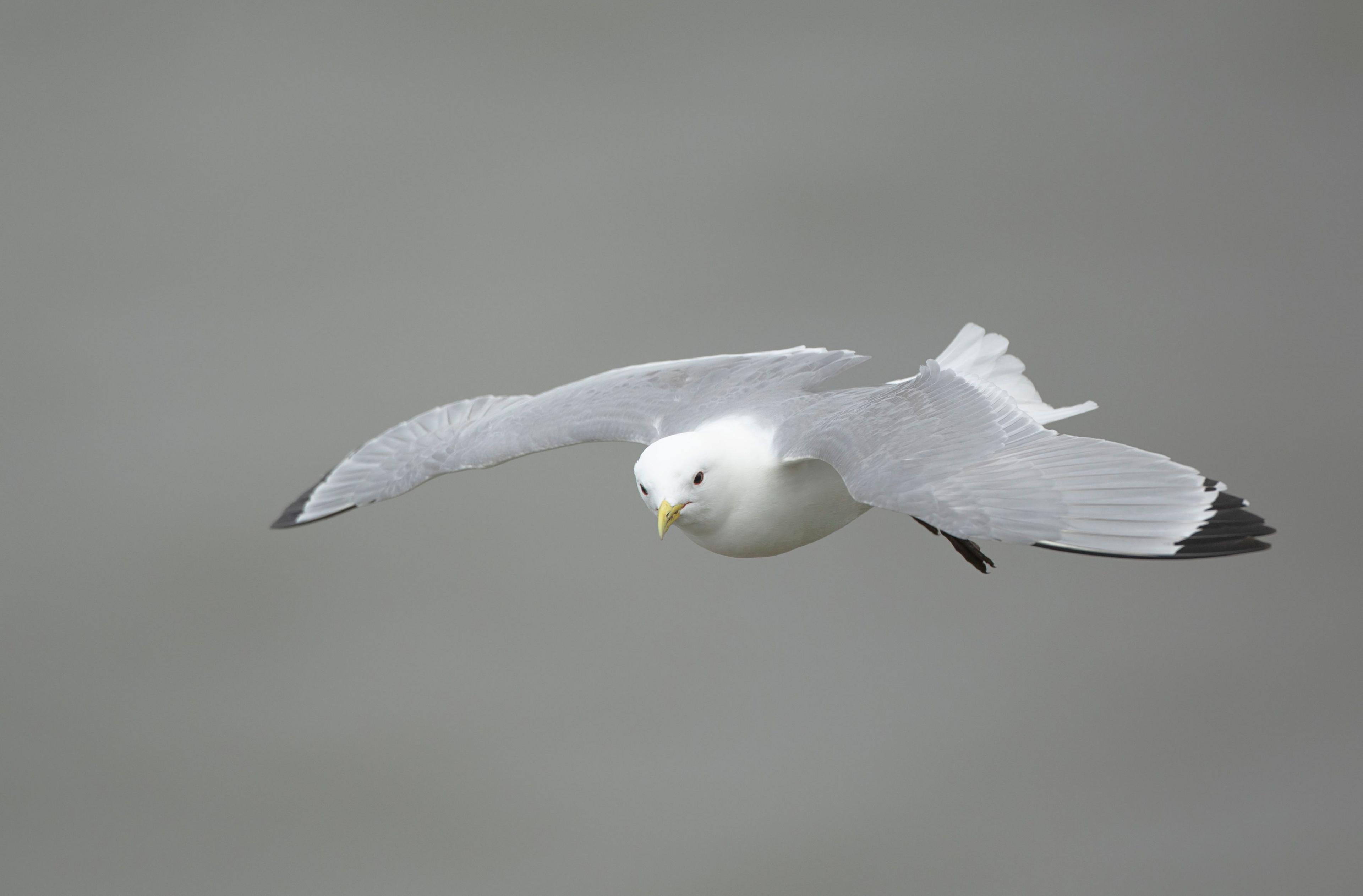
Kittiwake numbers in the UK have declined sharply in recent years
Dave O'Hara is the site manager at RSPB Bempton on the East Yorkshire coast, home to some of the biggest seabird populations in England.
"Sandeels are a key food supply for puffins, kittiwakes and razorbills here," he said.
"Kittiwakes need sandeels to feed their chicks but the population has declined by about 7000 pairs in the last seven years."
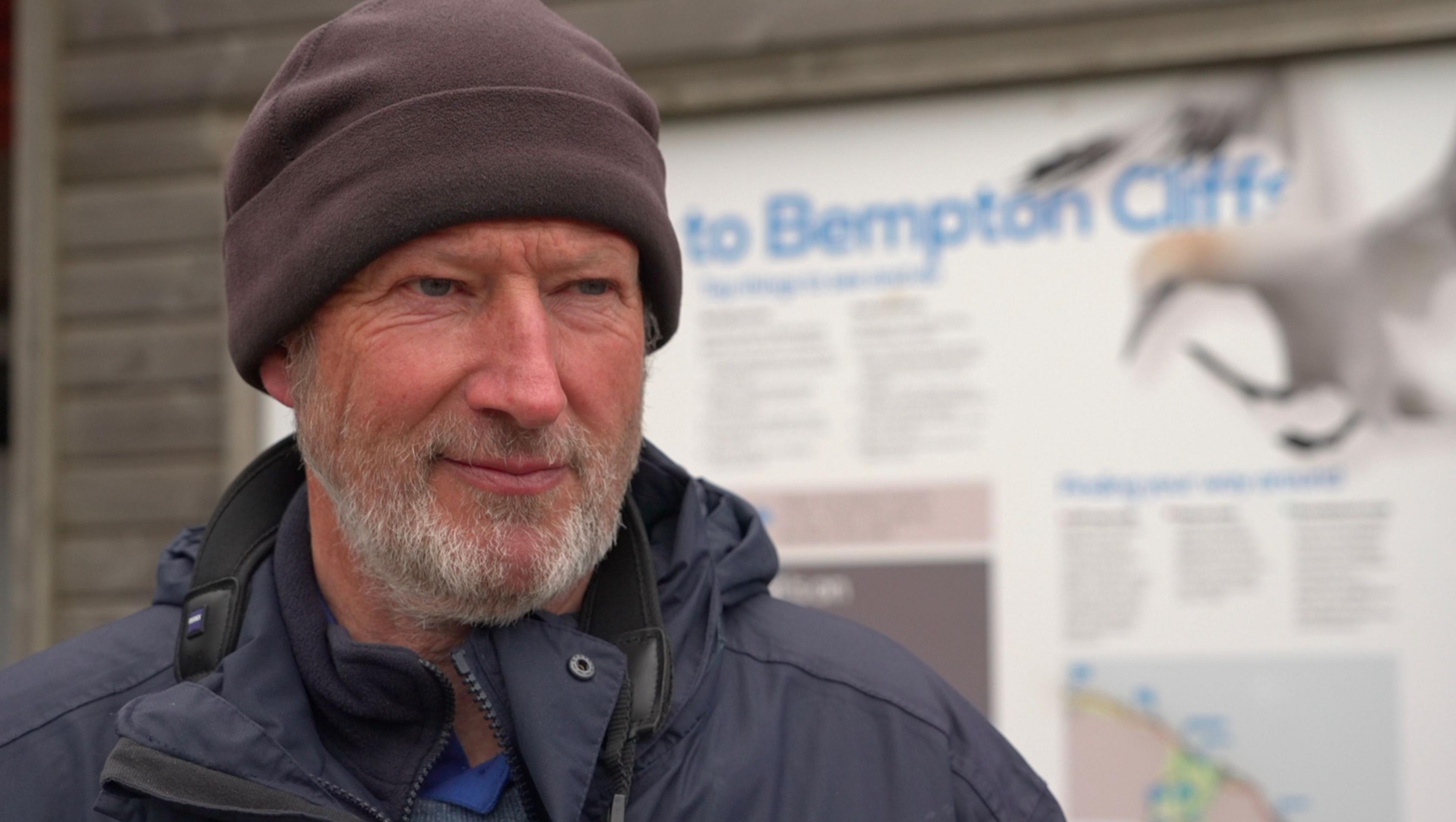
Dave O'Hara, the site manager at RSPB Bempton, is concerned about declining seabird numbers
A recent census by the Joint Nature Conservation Committee found more than half the seabird species breeding on British and Irish coasts have declined over the last 20 years.
The RSPB said overfishing and climate change had "vastly depleted" the sandeel populations that many seabirds rely on.
Follow BBC East Yorkshire on Facebook, external, X (formerly Twitter), external and Instagram, external. Send your story ideas to eastyorkslincs.news@bbc.co.uk, external
- Published12 April 2024
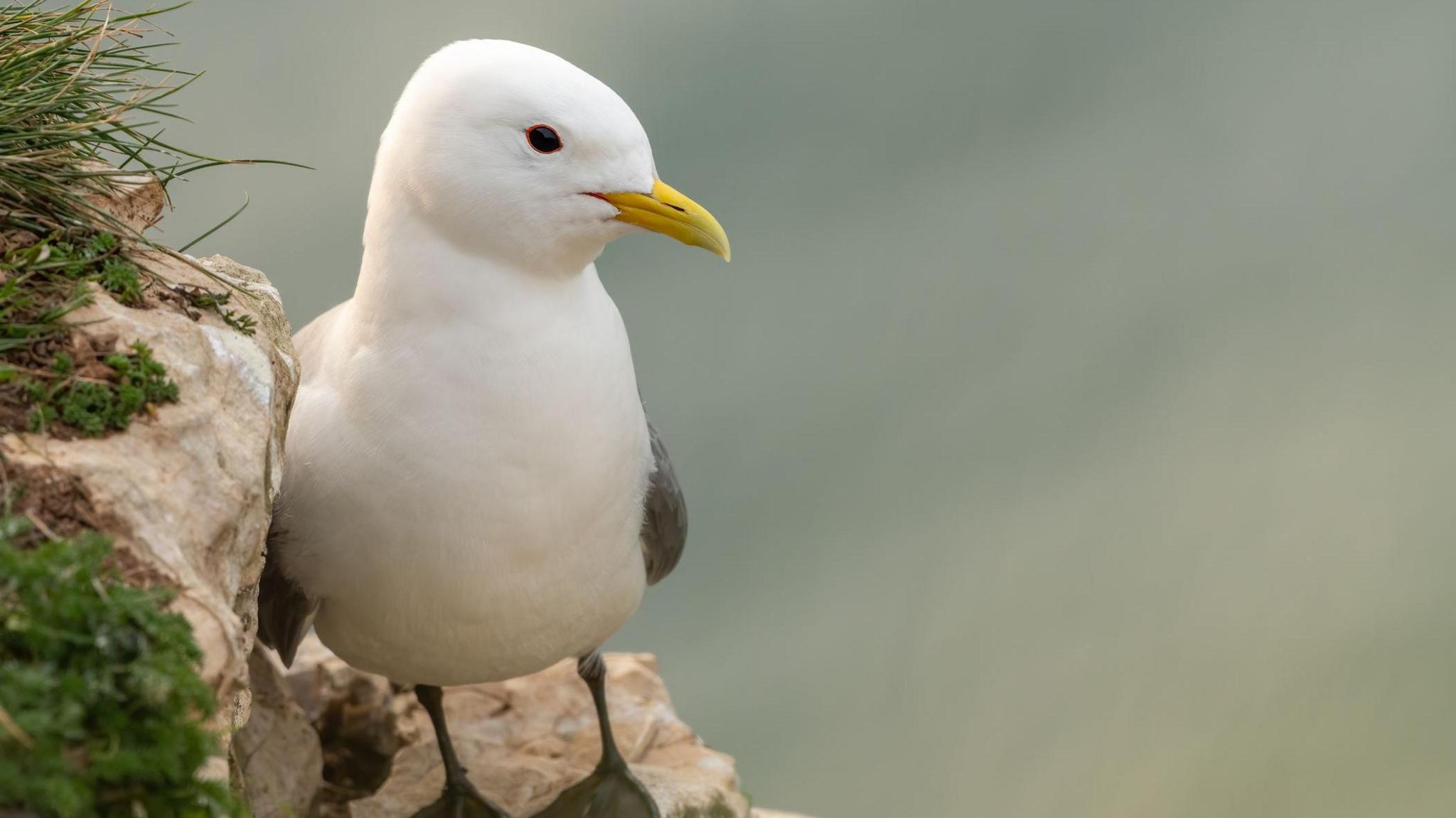
- Published7 March 2023
